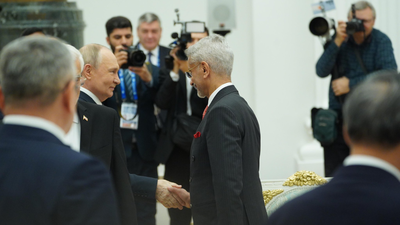
Jaishankar conveyed greetings from Narendra Modi and emphasised India’s commitment to advancing the bilateral agenda. The Russian side presented a delegation that included presidential aide Yury Ushakov, deputy head of the presidential administration Maxim Oreshkin, and the minister of economic development Maxim Reshetnikov. The ministerial visit coincides with a gathering of the Shanghai Cooperation Organisation heads of government in Moscow, providing a strategic backdrop for the talks.
Russia confirmed that active arrangements are under way for Putin’s scheduled visit to India in December, during which the pair are expected to convene for the 23rd annual summit of the two nations. Russian spokesman Dmitry Peskov affirmed that the visit will aim to be “very meaningful”, though specific agreement details remain undisclosed.
This dialogue builds on earlier engagements between Jaishankar and Russian Foreign Minister Sergei Lavrov, where they discussed bilateral and multilateral platforms including the United Nations, SCO, BRICS and the G20. The agenda encompasses defence cooperation, energy ties, technology transfer and broader geopolitical alignment.
Energy cooperation remains a major pillar of the bilateral relationship. Russia has voiced interest in joint extraction projects in its Far East and Arctic regions, underscoring a push to diversify its energy partnerships beyond Europe while India seeks stable long-term supplies. India has already become a key buyer of Russian oil under Western sanctions against Moscow, helping anchor the relationship’s economic dimension.
On the defence front, both corners remain committed to technical collaboration. India continues to rely on Russian platforms for procurement and maintenance, and the two sides are exploring high-tech joint ventures and local manufacturing. The summit visit presents an opportunity to deepen that cooperation amid India’s broader defence diversification strategy.
Geopolitically, the relationship assumes added significance against the backdrop of global realignment. Russia views its strategic partnership with India as a counter-weight to what Moscow terms a Western-dominated order, while India balances its Russia tilt alongside expanding ties with the United States and other Indo-Pacific partners. Ministers on both sides emphasised the value of a multipolar world system and pledged to coordinate their approaches in international forums.
The timing of Putin’s India visit is critical. His last official trips to India were in December 2021, before Russia’s large-scale military operations in Ukraine, and Moscow is keen to revamp ties and build momentum for future cooperation. The upcoming summit is expected to translate diplomatic goodwill into concrete agreements, though observers caution that deep structural issues remain, including payment mechanisms under sanctions, logistics pathways and India’s hedging requirements in the Indo-Pacific.
Domestic political considerations are also in play. India’s energy security calculus places Russia high on the list of suppliers, while Moscow values India’s consistent refraining from Western pressure, particularly in the context of Ukraine. The Kremlin’s invitation for the Indian leader to host Putin underscores Moscow’s prioritisation of Delhi as a strategic partner.
Analysts point out that while the bilateral relationship enjoys strong historical roots, converting diplomacy into execution will be the next test. Key sectors—such as Arctic energy development, indigenous weapons manufacturing and supply-chain localisation—will determine whether the summit outcomes surpass symbolism.
